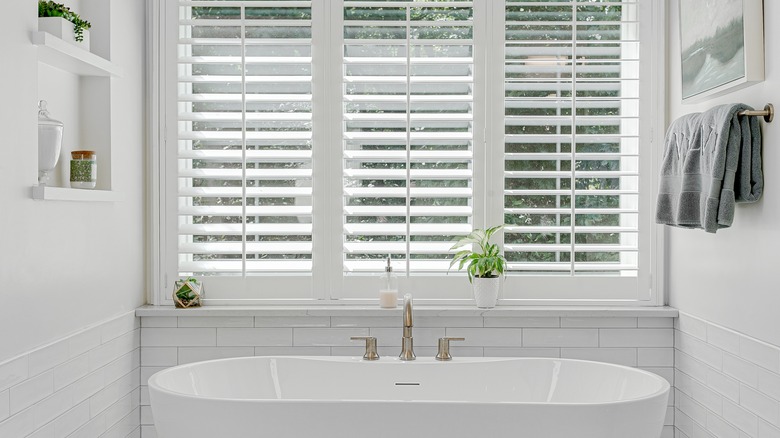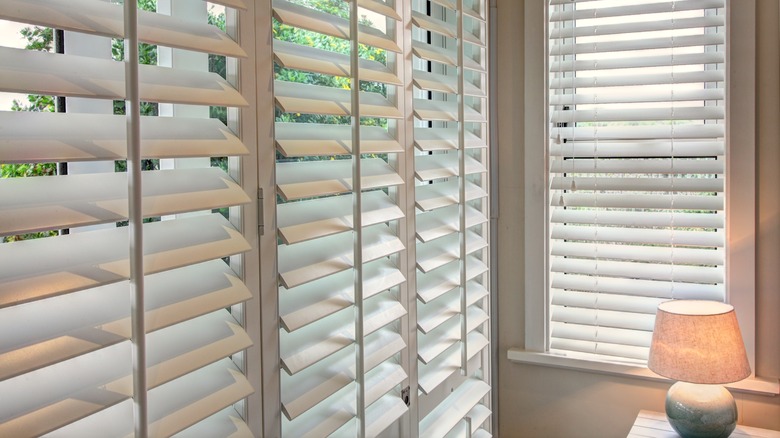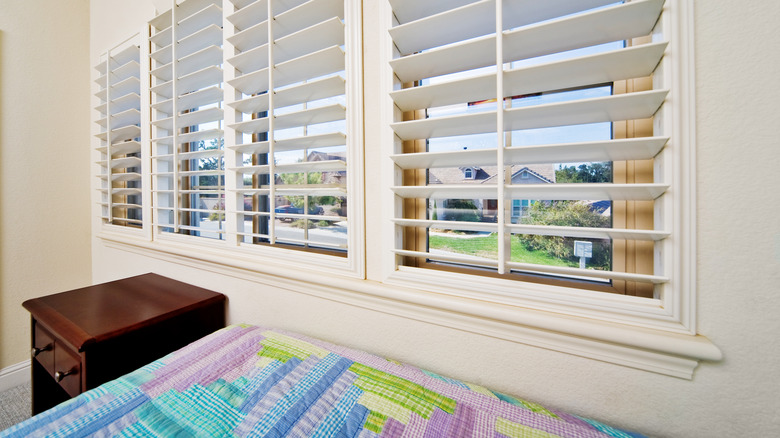The Pros Of Faux Wood Shutters You Should Know Before Investing In Blinds
Does your living room still have long, heavy, paneled drapes covering your windows? Or perhaps you have half-falling-down blinds that the kids may have pulled on a few too many times? Consider making the move to shutters instead of traditional blinds. Shutters for the windows aren't the same as those that hang from the exterior of the house, serving as nothing more than décor: rather, they hang within your home's windows, working just like blinds you can control. Even better: when it comes to materials, you have options.
Sure, you could invest in wood shutters, a heavy but beautiful addition to your living room. They will certainly add dimension and create a nice level of natural beauty in your space, depending on what you purchase. Yet, wood is heavy, tends to take a long time to be custom-made, and may actually be less efficient than other products.
If you want the look of shutters but you want an easier-to-manage window treatment, it's worth looking into faux wood shutters. Among all the common window treatment options for your home, faux wood shutters offer numerous benefits. Typically made of PVC, these shutters are lighter, may be more affordable, and could be more energy efficient for your home. They are also more of a DIY option compared to the harder-to-manage wood blinds. If you're unsure if these blinds are best for your home, take a closer look at the pros of faux wood shutters.
The aesthetic benefits of faux wood shutters
Faux wood shutters are much like interior plantation shutters, which are historically pleasing with their beautiful wood design. Faux wood shutters offer a lot of the same appeal in terms of the way they look and function, but they're not as complex as wood can be. Like real wood shutters, they provide ample privacy. Unlike wood, though, they're not likely to be scratched by the cat (who just happens to like to perch there).
A variety of styles and colors are available, including textured and non-textured. They can look just like real wood. You have ample opportunity to choose the slat size that is best suited for your window, such as a smaller size to match your window trim. Going with a slightly larger slat could offer more of a dramatic feel for a larger window.
Also important is their ability to be easily maintained, which directly contributes to the aesthetics of these blinds. They don't require painting or staining like most wood shutters do over time. Most quality products will not fade — even with direct sun exposure –thanks to their composite material makeup. You can simply wipe them clean without worry. Since they are moisture and mold-resistant, that also makes it rather easy to keep them clean.
Furthermore, you'll find that faux wood shutters, with their solid wood look, are nearly always a trendy option. They won't go out of style. This means this is an investment you can make once and not worry about for a long time.
The financial benefits of using faux wood shutters
While investing in faux wood shutters is generally a good financial choice, the problem is that comparison shopping is tough. While faux wood tends to be more affordable than real wood overall, numerous product options and qualities are available. You'll need to do your research to purchase high-quality faux wood and not just any product that's priced the lowest. This is also dependent on the type of material. PVC and vinyl are two options, though some composite materials and MDF products are lower priced and may not offer a good look.
You may be worried that faux wood's thin design (which makes it super lightweight and easy to hang) is an issue when it comes to energy efficiency. That's not the case. Rather, they are hollow inside, which works in their favor. This creates a bit of an air gap between the shutter components that work as an insulator, improving energy efficiency overall. And remember, they are also highly durable, which saves you money in the long run with no painting or early replacement. Without the risk of warping or fading, they could last as long as 10 years, depending on the product's quality. In other words, they should be on your shortlist for stylish window treatment ideas for your space.


